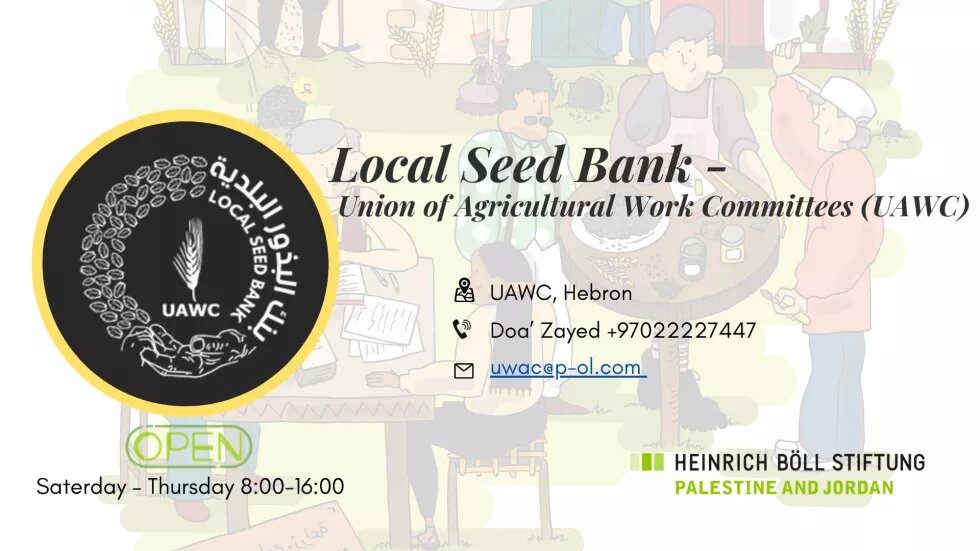
A seed bank is a place where seeds are either stored short-term to be used in agriculture or for long-term preservation. The establishment of seed banks in Palestine and the Arab world arose out of the immediate need to preserve local traditional seeds that are the result of centuries of careful selection by farmers. These seeds are facing the threat of extinction as more and more sterile and genetically modified (GM) seeds are taking over the agricultural sector. Sterile and GM seeds are produced by commercial seed companies that claim their purpose is to give the “highest possible yields” under “ideal” conditions. These seeds are specifically developed to be used as part of a “package” along with agricultural chemicals. The largest and most dominant agrochemical and biotech multi-national corporations producing these seeds, such as Monsanto, Syngenta, Bayer etc., sell both seeds and agrochemicals.
This high input farming has dire consequences on the environment. It destroys the natural fertility of soils, threatens biodiversity, poisons groundwater, and contaminates whole food chains and ecosystems. It is also dependent on having reliable access to large amounts of water for irrigation, as the seeds are designed to be water intensive. On the contrary, baladi crops have been selected to withstand environmental stresses such as droughts and pests and are inherently genetically diverse. Baladi (heirloom) seeds contain the genetic variety that is crucial for crops to be able to adapt to a changing climate. They can also be reproduced from season to season and are thus suitable for seed saving, unlike sterile and GM seeds that must be purchased every season. It is thus vital that baladi varieties are preserved.
Local baladi seeds, just like generations of Palestinian farmers, encompass centuries of wisdom, local knowledge, and richness that no “modern” replacement can provide. They are crucial for a community’s food sovereignty and independence. They are also cheap and available for every farmer’s use. Equally important, saving and exchanging baladi seeds is a social practice that keeps the community connected, engaged and strong.
The Local Seed Bank at UAWC has been working to reproduce and improve local seeds since 2003. Until now, 45 types of vegetables, field crops, legumes and medicinal wild plants have been successfully reproduced and improved and their hereditary sources are being preserved in the seed bank. The staff work mainly on preservation and documentation of local vegetables and grain seeds in the West Bank. Over the years, UAWC has also acquired extensive knowledge on local seeds, traditional seed bartering, and swapping practices by generations of Palestinian farmers and much more. Additionally, the Local Seed Bank at UAWC has reproduction units in different locations in order to provide sufficient quantities of baladi seeds to farmers.
Farmers are encouraged to receive seeds from the Local Seed Bank for both winter and summer agricultural seasons and to return part of the reproduced seeds to the Local Seed Bank to be preserved for upcoming seasons.
The Local Seed Bank in Hebron is a must-visit as you can witness the methods of seed preservation and the abundant Palestinian local seed types. If you are planting, consider growing baladi crops next season, save the seeds, and share them with your neighbors. Be a part of the movement to keep Palestine’s indigenous crops alive.
_______________________________
Product Selling Points: Available in Local Seed Bank unit and in the field in nursery and multiplication units. Prior coordination needed.